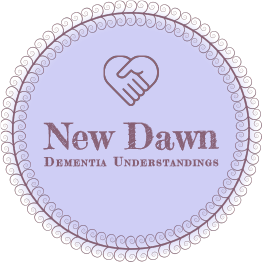WHAT IS RESPONSIVE BEHAVIOR?
As human beings we all have reactions to stimuli and situations which are a response to a given situation. For those living with dementia their reactions are called “behaviors” rather than responses. This needs to change. Our human need for reassurance, attention, purpose, security, social contact, and self-esteem do not change with dementia. It is not ok to assume that a person living with dementia is responding a certain way “because they have dementia, and therefore there is nothing we can do”. There is an unmet need at the root cause of their response.
The concept of Therapeutic Nihilism addresses the following myths about behavioral responses in dementia: “There is nothing we can do but be patient; They cannot comprehend. They cannot learn; They cannot give a valid response”
In order to get at the root cause of the response we must look at issues which are prompting the response. Be a Dementia Detective. Ask the following questions: Where is or it not happening? When does it occur? What is the surrounding environment? What are other people’s reaction to the response? Who is it directed towards? Who is affected by it? Is the person seeking information, attention, or reassurance?
Describe their response in operable terms. Don’t just say “they have aggressive behavior”. What exactly are they doing? Are they shouting, hitting, threatening others? Many times what we are too quick to write off as “aggression” is a response to frustration, unmet physical or emotional needs, boredom, or lack of self-esteem.
Are they seeking reassurance? The need to feel safe from harm, know that we cared about, supported and understood are human needs.
Are they seeking attention? The need to feel emotionally fulfilled, to be seen by others as an individual, self-esteem, and have our opinions matter are also human needs.
Are they seeking social contact? Ask yourself if we truly know their interests. Do we ask them what they would like to do, or do we assume we know what is best for them? How do we treat them as human beings? Do we talk around them but not to them because we assume they cannot comprehend? Are they depressed?
With or without a dementia diagnosis we are all human beings with the same basic human needs. Let’s be sure we are addressing those needs for all.
I will be suggesting some methods for addressing responses such as Repetitive Questions, Wandering, Social Isolation, and components of Aggressive “Behaviors” in upcoming posts. Please check back soon.
